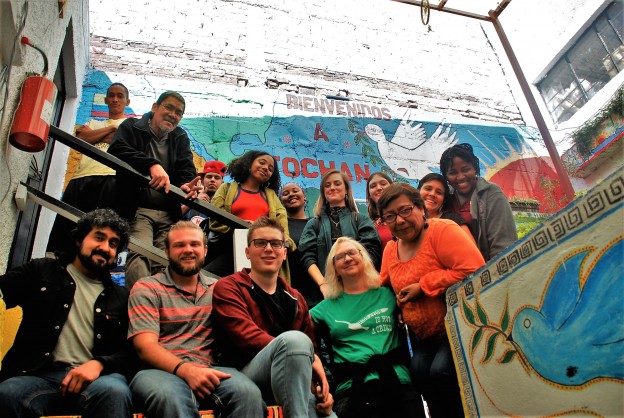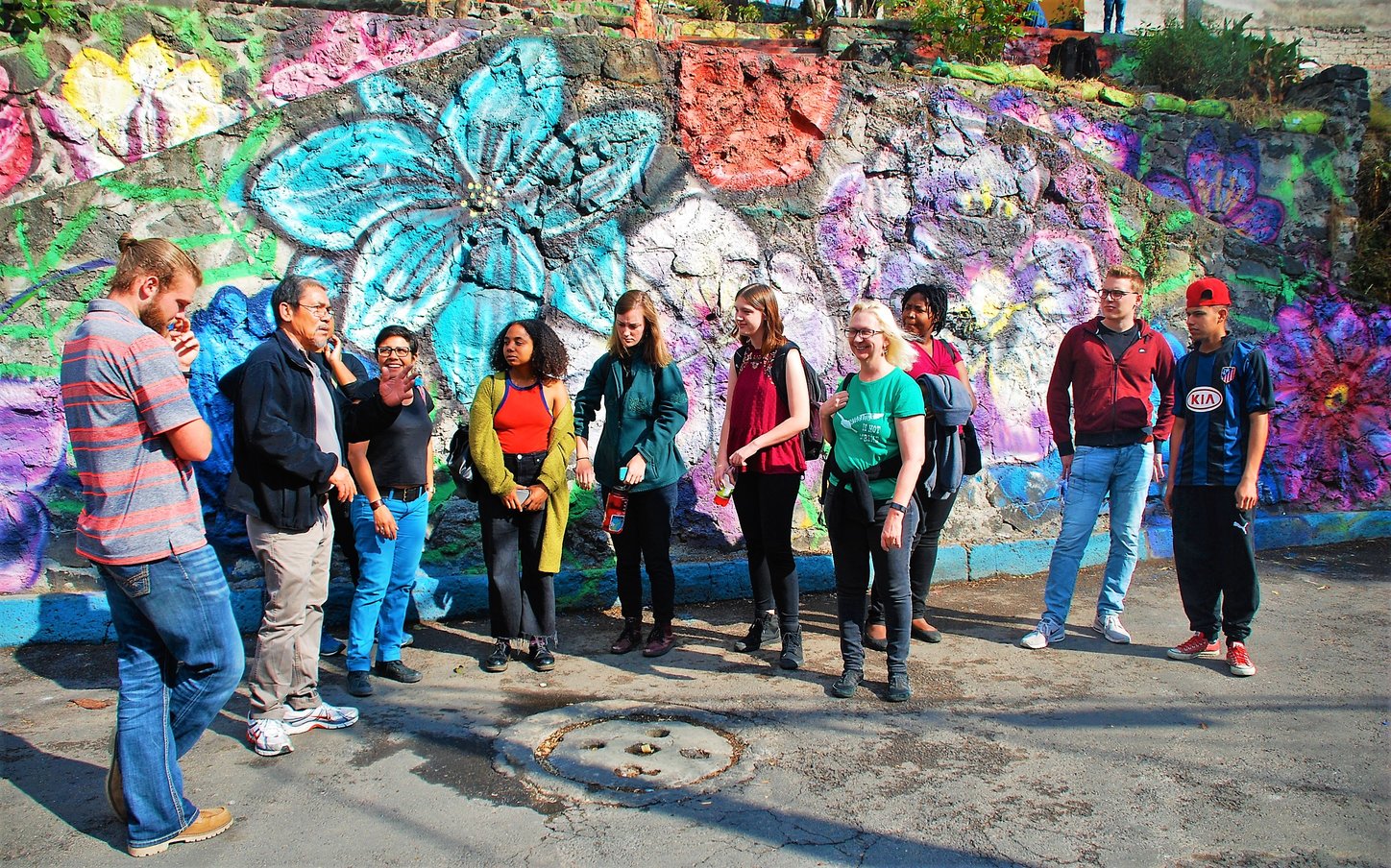Engaging with migration and immigration in the context of Mexico has opened my eyes to many social issues. During a week in Mexico City, my class visited a migrant shelter (Tochan), a deportee shelter and the US Embassy. All three visits provided images that worked together to create a picture of immigration. Tochan consisted of mostly of people trying to migrate from Central America to the US, while the deportee shelter consisted of people who have been deported from the US. The US Embassy simply served as an extension of the current administration in the United States.
The most impactful part of both visits to shelters was hearing all of the very unique but similar stories. All the stories provide a different perspective on the policies about immigration that seem so removed from real life. We spoke with one young man who lost his whole family in Ecuador and is on the journey to reestablish his independence or freedom in Mexico City. From the deportee shelter, we heard a story of a woman who lived the US for 16 years but she was undocumented. While trying to obtain legal status she was deported and told she could not return to the states for 25 years. Her whole life including her kids still live in the US and essentially have no way of seeing their mom. As I experience more immigration stories the foundation of all of them are family separation. So the immigration stories juxtaposed with the policies enforced by the US government are very distant from each other. What I mean by that is the needs of the people are not being met while the governments insist they are enforcing policies to benefit the people. My understanding is either the governments involved don’t know or they don’t care, and in the meantime, families are being ripped apart and destroyed.




